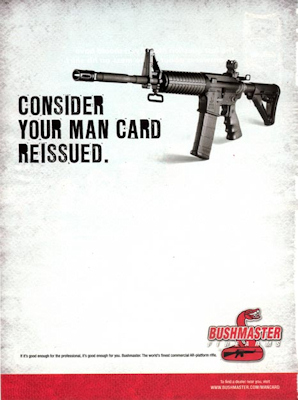 My husband and I had a heated debate about guns last night. It didn’t turn into a full on fight but he has some passion about this topic. We both think there should be some regulation on guns – he’s not a hard core 2nd Amendment guy – but he feels pretty defensive about them and is generally skeptical about “blaming” guns for anything. And I have sympathy for that argument.
My husband and I had a heated debate about guns last night. It didn’t turn into a full on fight but he has some passion about this topic. We both think there should be some regulation on guns – he’s not a hard core 2nd Amendment guy – but he feels pretty defensive about them and is generally skeptical about “blaming” guns for anything. And I have sympathy for that argument.
We are gun owners who live in a red state. Hunting to us is a necessary fact of life that enables us to be more self-sufficient, not 100% dependent on grocery stores and confined animal operations that pollute some far off waterway. And if we share a philosophy about life, it is definitely about being more part of, and out in, nature.
Recently the New York Times published an article called What Explains U.S. Mass Shootings? International Comparisons Suggest An Answer. It shows that social issues like mental health, racial divisiveness or rates of violence cannot explain, statistically speaking, high rates of mass shootings in the U.S. The only factor that correlates across the board with high rates of mass shootings are high rates of gun ownership. Yemen is the only country that competes with the U.S. on rates of mass shootings and gun ownership both.
International Comparisons Suggest An Answer. It shows that social issues like mental health, racial divisiveness or rates of violence cannot explain, statistically speaking, high rates of mass shootings in the U.S. The only factor that correlates across the board with high rates of mass shootings are high rates of gun ownership. Yemen is the only country that competes with the U.S. on rates of mass shootings and gun ownership both.
So the question is, how can there be a connection between an object and violence? It is the person who commits the crime, no doubt about it. A gun is not a magical object.
 I would argue, though, that humans have attributed magical qualities to guns. We have imbued them with a fantasy of what they represent to us, perhaps power, strength, or control.
I would argue, though, that humans have attributed magical qualities to guns. We have imbued them with a fantasy of what they represent to us, perhaps power, strength, or control.
Humans do that, of course, with objects. I see a cult-like following of marijuana, especially lately with numerous states legalizing it. I could even be considered one of those cult members, although I’m not really. To me, it was always simply a path to relaxation and happiness. I don’t hang up pot leaf tapestries and read High Times or anything like that.
It’s not that different with guns. You see guys with their big trucks and a sticker reciting the 2nd Amendment in cursive on the back windows, or some other bumper sticker shining their opinion out in to the world, at least if you live in a rural area. I probably don’t have to name the ways men and women in this country express their reverence for guns and gun rights. It’s kind of a cult, like with pot or anything else that takes on elevated status for long periods of time.
So in this way, using guns can go viral, because they are ideas as much as they are objects. And using them for mass shootings has been trending it seems like.
 So imagine a man, young or old, stewing over an argument, or a grudge, or simply fantasizing about the ways he can get revenge on a person, or group of people, whoever they may be. The fact that there is a gun available stimulates a line of thought that may have gone a different direction if the gun wasn’t readily available.
So imagine a man, young or old, stewing over an argument, or a grudge, or simply fantasizing about the ways he can get revenge on a person, or group of people, whoever they may be. The fact that there is a gun available stimulates a line of thought that may have gone a different direction if the gun wasn’t readily available.
Like the guy who recently killed 8 people in Manhattan with a truck. He did not have access to a gun, I’m assuming, so his revenge plot involved a different object that can be used in a lethal manner, like a hammer, or even a pair of hands. My husband points out that if the man had had a gun he could have climbed out of the truck and proceeded to kill a lot more people, and why wouldn’t he if that’s his overall goal.
So the New York Times does not explain per se why there are more mass shootings, because connecting it to higher gun ownership rates is kind of obvious. The question is how gun ownership can turn into mass shootings because we all know that objects can’t kill people unless used by humans to do so.
The answer is simply, guns are not just objects, they are “ideas”. The idea of shooting tons of people at a time is an idea itself that is inextricably linked to guns. Ideas that get attached to objects can spread like viruses, and I would argue this is what is happening with mass shootings in the U.S.
And yes, I told my husband about this theory. He’s thinking about it.
